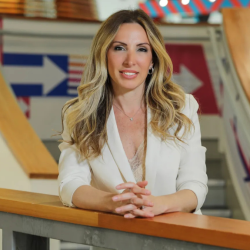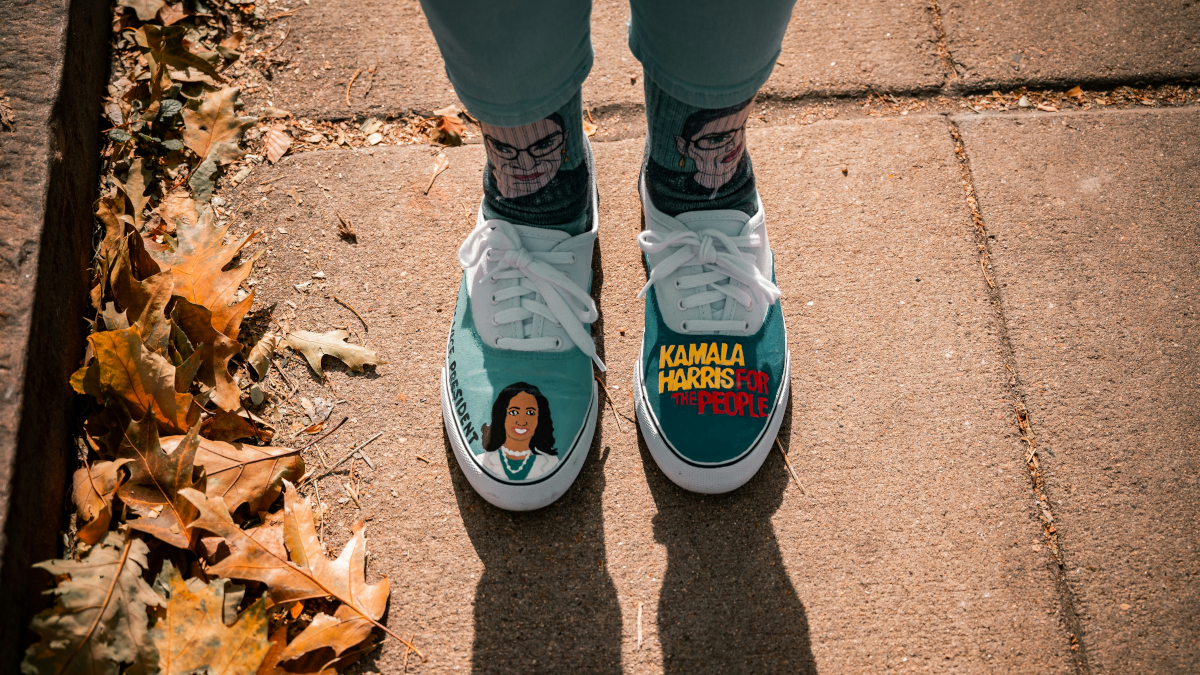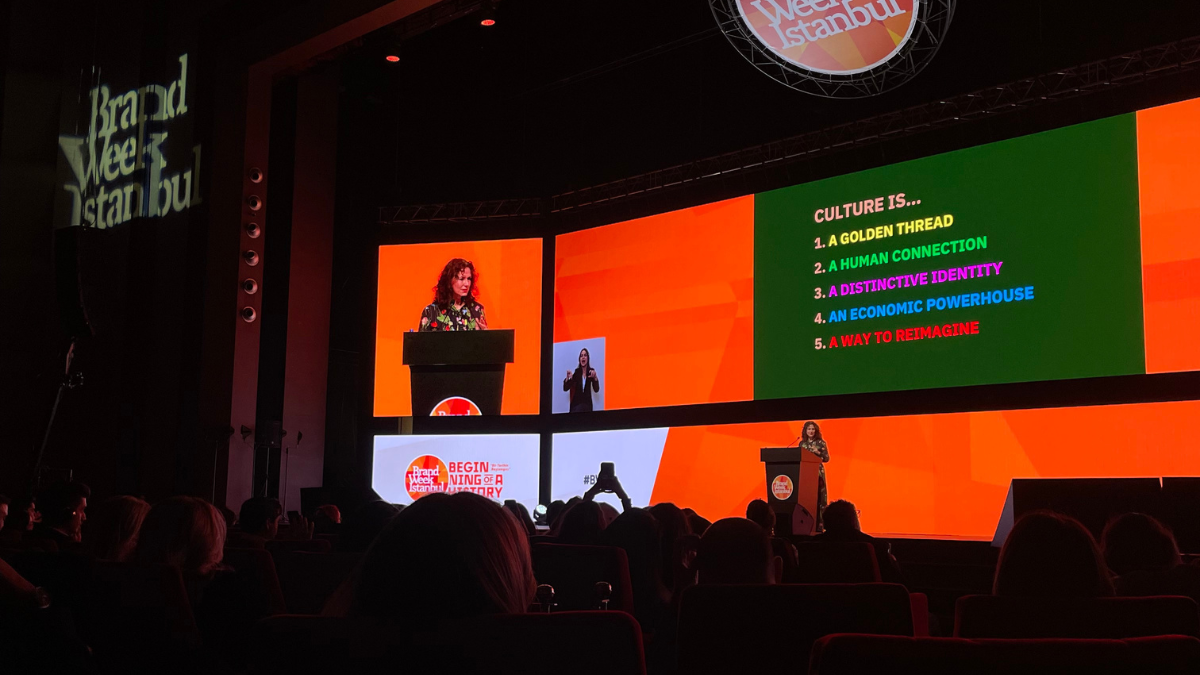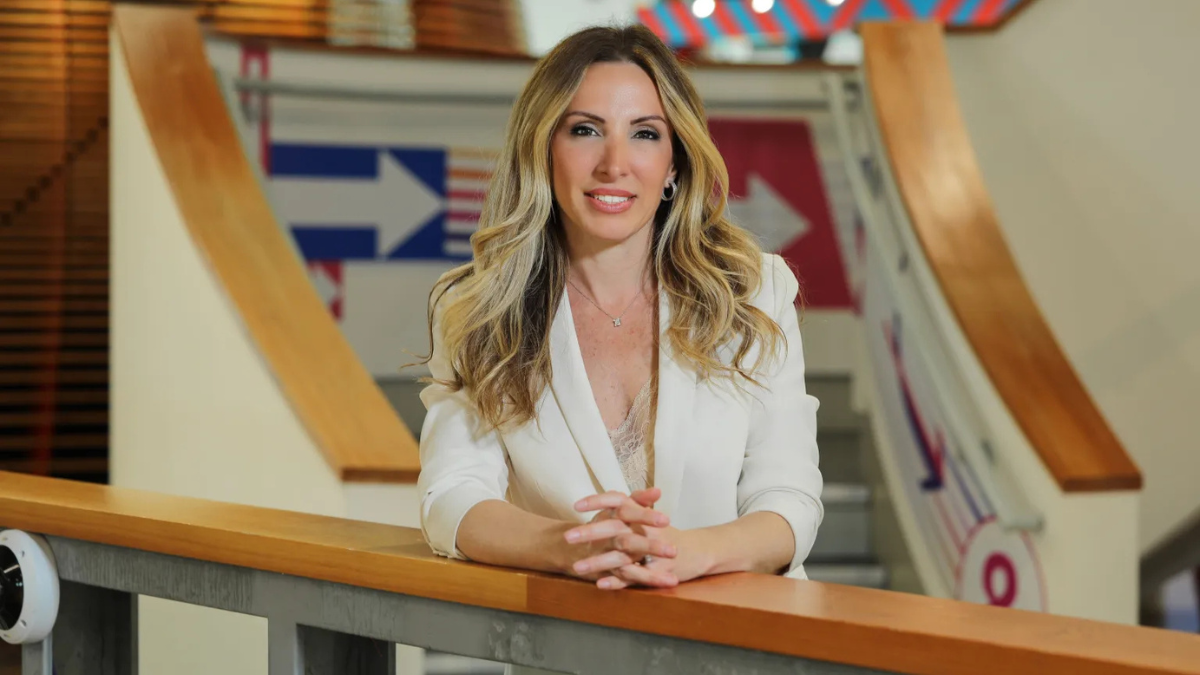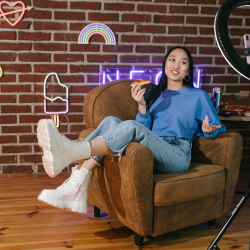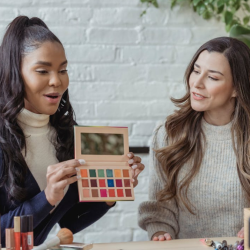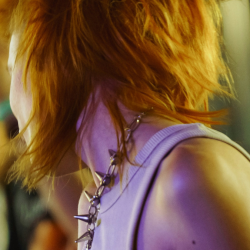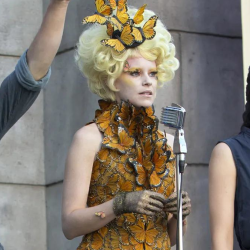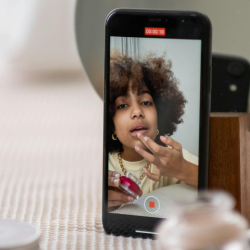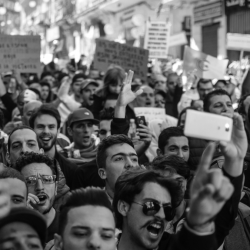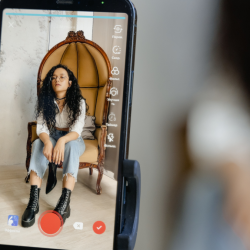It’s election time, baby!
Trump vs Harris. It’s neck and neck. Too close to call. Elections like this come down to every vote, and the smallest moment can have dramatic impact. But we’re not here to talk about the major players, or make predictions. This is about those in a best supporting role. Those influencers aligning on either side of the campaign – exploring their power, reach and side effects.
In the blue corner we’ve got Taylor, Obama, Eminem even Bruce Springsteen turning out to pump the hype and get people behind Brat-summer-Harris. Who’s in Trump’s corner? Elon, Tucker Carlson, Kanye and born-again Christian, Russell Brand. OK, it’s safe to say Harris not only has the numbers, but arguably the better calibre of celebrity backer. Elon is off-and-on the world’s richest man, so I guess that counts for something — especially with his questionable attempt to buy voters in a daily million dollar voter registration giveaway.
But does the mixing of these brands really rub off love from one to another? It’s easy to see why campaigns love endorsements — seeing them like golden tickets that buy votes. These celebrities have high engagement rates, millions of fans and enormous reach — but do they have the power to change minds? When it comes to elections only two things matter. Getting your vote out and swaying the undecided people.
So, do these celebrities get the vote out?
Absolutely. Some better than others. When Taylor Swift or Obama endorses a candidate, they bring not just visibility but a sense of urgency that can drive their followers to register, especially among younger demographics who may otherwise sit out. Swift’s endorsement in 2018 sparked a surge in voter registrations, mostly among first-timers. Her fan base, devoted and vocal, often takes her messages to heart, amplifying them across social media and encouraging their peers to participate. It’s a powerful force — but it’s not universal. The flip side? While these celebrity shout-outs can electrify their base, they don’t necessarily bring in undecided voters. Even worse, they sometimes alienate. For every new voter Taylor brings, there’s another who may feel like her involvement is out of touch or even elitist, creating resistance rather than conversion.
So, while the hype and engagement are undeniable, the jury’s out on whether it’s the silver bullet campaigns hope for.
A study from the Journal of Political Marketing found that while celebrity endorsements can increase visibility and ‘excitement’ around a campaign, they primarily activate people who already lean toward a candidate or party, rather than converting undecided voters.
This is similar to the way social endorsements work in brand marketing; people may feel more validated in a choice they’ve already considered but rarely make a completely new decision based solely on a celebrity’s opinion.
Does the size of influencer matter?
Yes. Smaller ‘nano-influencers’, typically those with less than 10,000 followers can be much, much more effective at persuading the undecided. This is because creators of this sort are community founders, they don’t just post content, but actively forge meaningful internet relationships with their fans. They’re more like friends and family than far off untouchable figures.
Are there trade-offs?
When brands rub shoulders with other brands, there’s always an exchange — some part of one brand will rub off on another. That’s great if the public loves both, but risky if either side falters. Think back to any number of brand-celebrity endorsements that went south, and you’ll see how quickly public perception can change. Endorsers get mired in controversy, and suddenly, that halo effect works in reverse. These partnerships can quickly turn vampire-esque, with one brand growing its platform by feeding on the popularity of another, while that other, leaks support. Russell Brand’s attachment to Trump’s campaign no doubt works miracles for his reach — but might damage more moderate republican support.
Likewise, Elon Musk’s brand needs global appeal, and so is damaged by aligning with Trumpian MAGA politics. In this case, it’s obvious that Trump has more to gain from this association than Elon — making Trump the vampire. That does however skip over the fact that Elon could be looking for some regulatory softening to make his self-driving cars more likely to happen in the next presidential term — that’s politics, folks.
It’s all about calculated association
A celebrity endorsement can give a brand an edge with specific demographics, but it can also alienate those who feel at odds with the figure’s lifestyle, politics, or even social media antics. As with Harris vs. Trump, brands need to consider who their fans are and whether aligning with a certain celebrity will hit the right note.
Otherwise, they risk finding themselves, much like certain politicians, backed by an audience they didn’t really want — or an audience that makes a lot of noise, but doesn’t buy the product. So, does celebrity support matter? Sure, but maybe not in the ways we think. In politics and marketing alike, the association game is nuanced. Sometimes, an influencer’s backing is worth its weight in gold, and sometimes, it’s just expensive noise.
The true impact of celebrity endorsements is not in numbers, but in perceptions, proving that the brand alignment game, whether for politics or products, is a high stakes one. One that requires a careful, thorough and thoughtfully considered touch.
Featured image: Colin Lloyd / Unsplash







